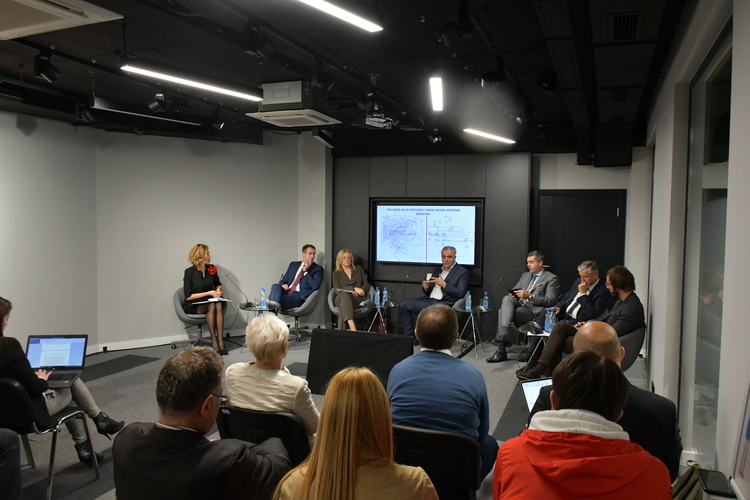Unregistered real estate is an unused resource worth billions of euros
According to the official data of the Republic Geodetic Authority, nearly one in two real estate in Serbia is not registered in the cadastre and is not on the regulated market, which represents a great untapped potential of our economy. Solving the serious and decades-accumulated property-law problems over real estate would unlock capital worth billions of euros, enable a huge number of real estate to be registered in the cadastre and put an end to complex cases from the past, which is why NALED prepared the first comprehensive reform proposal in this area.
NALED's new study, created with the support of the Swedish International Development Agency (Sida), through the project "Public procurement and good management for greater competitiveness", was presented at the meeting of the members of the Property and Investments Alliance and submitted to relevant ministries for review. It also proposes solutions for issues of legalization of illegally built buildings, improvement of land consolidation and expropriation procedures, digitization of urban planning through the introduction of the eSpace system, liens, public property management, real estate taxation, solving the challenges of cooperative land and other procedures.
Competitiveness and Investments Director in NALED, Dušan Vasiljević, indicates that the study covers solving serious and decade-long problems, which cannot be simple, but could be quick, with the strong will and determination of the competent institutions.
- We have two million illegal buildings and another 2.7 million that are not registered in the cadastre for various reasons. At this rate, the legalization process would take 40 years, and the losses that the state, citizens and businesses suffer as a result are already enormous. That is why we propose to implement mass legislation, where possible, with the adoption of clear measures that would stop further illegal construction. For the second group of immovable properties, it is necessary to include judicial professions and form special commissions that will work on the validation and verification of old incomplete documentation, in order to register all immovable properties on the basis of that," Vasiljević emphasized.
One of the measures proposed in the study is the establishment of a state real estate fund (land bank). In accordance with international practice, the goal is to replace land whenever possible in consolidation and expropriation procedures and to introduce one central body that would manage substitution, purchase and sale operations.
In addition, complete digitalization of the preparation of spatial and urban plans is necessary, through the introduction of the eSpace system, so that the whole process is more efficient, and citizens and the economy can react in time and influence decisions about construction in their area. In this way, the institutions would electronically exchange information, give comments, issue conditions and consents and simultaneously work on the development of plans, which would significantly speed up the adoption of documents, because they would work in parallel in the same system, instead of waiting for each other for months now. do their part.
Along with the digitalization and optimization of the aforementioned procedures, the study states that it is necessary to work on improving the taxation system through more efficient collection of taxes on income from the sale of real estate and the introduction of a tax on the total "world" immovable property, which would apply to those with very valuable real estate in abroad.
Vasiljević states that in this area, great progress has been achieved since seven years ago, when electronic construction permits were first introduced, with which even 73% of investors are now fully satisfied. On the initiative and with the support of NALED, in 2019, a major reform of registration in the cadastre was carried out, and the electronic system eCounter replaced numerous trips to the counter and shortened the average time for resolving new cases from 25 to 6 days.
NALED will continue to advocate for a systematic and comprehensive resolution of property-legal relations, and the first next step is the preparation of additional, in-depth analyzes that will refer to a new approach to establishing and registering rights in the real estate cadastre and improving property taxation and expropriation.




